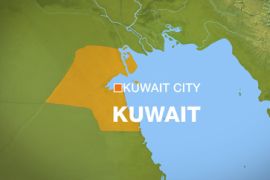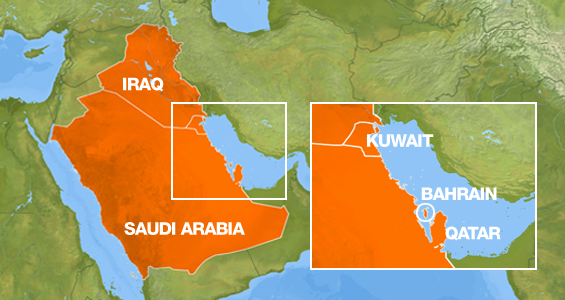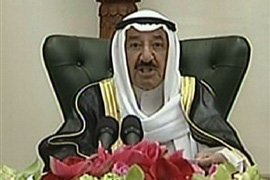Country profile: Kuwait
Kuwait is politically and socially one of the most liberal Gulf states.

 |
Arguably, most people outside the region would have known little about Kuwait before Iraq’s 1990 invasion and the seven-month occupation that led to the first Gulf war in 1991.
Strategically wedged between giant and powerful neighbours Iraq and Saudi Arabia at the top of the Gulf, this relatively small country is one of the richest in the world.
Kuwait sits on the world’s fifth-largest oil reserves and is the sixth biggest oil-producing state after Iran, Saudi Arabia, China, Russia and the US.
It owns about eight per cent of all discovered reserves, giving its people an average income of almost US$60,000 a year.
The country is politically and socially one of the most liberal of the Gulf nations.
It was the first Arab state in the Gulf to move to a constitutional monarchy, holding its first election for its 50-seat national assembly, the Majlis al-Umma, in 1962, the year after formal independence from Britain. The parliament formally convened in 1963.
In 2005, women were given the same rights as men to vote and to stand for seats in the assembly.
But overall control is still firmly in the hands of the Al-Sabah royal family – now headed by Emir Sheikh Sabah al-Ahmad Al-Sabah – which has ruled for about 250 years.
 | |
|
 Capital: Kuwait Capital: Kuwait
* CIA World Factbook |
Post-independence politics have long been fractious, with several dissolutions of the one-house parliament over the years. The Economist Intelligence Unit’s 2008 democracy index ranks Kuwait a low 129th out of 169 countries.
Islamic conservatives are strong in parliament, but they are also divided.
Demands for more power for the unicameral parliament, closer scrutiny of the appointed cabinet and formal recognition of political parties continue to cause friction between the royals and the parliament.
Political parties are not officially allowed but political “groupings” are tolerated, including the hardline Salafist movement.
“The Emir will remain the ultimate political authority,” says the Economist Intelligence Unit, predicting “the long-running political crisis between the government and the parliament will continue in 2009-10”.
“Kuwait’s ongoing political impasse will have a strong impact on the country’s economic outlook, with the economy expected to contract in 2009.
Falling oil prices and the world economic crisis will also put pressure on the economy, but Kuwait has long had measures in place to build reserves to deal with crises.
Kuwait is thought to invest something like 10 per cent of all oil revenue in its Future Generations Fund in preparation for when the oil reserves run out.
It is this kind of forward planning that put Kuwait in the position to underwrite its own reconstruction after the 1991 Gulf War.
In addition, Kuwait still receives war reparations from Iraq that amount to five per cent of Baghdad’s oil revenues – even as the country struggles to rebuild after the US-led 2003 invasion.
As Iraqi troops fled Kuwait during the US-led United Nations assault in 1991, they torched hundreds of oil wells, sparking an environmental disaster most experts expected thought would take at least five years to halt, let alone fix.
However, teams lead by Red Adair – the renowned Texan fighter of oil well blazes who was, even then, in his mid-70s – brought the fires under control in just nine months.
Missing ‘PoWs’
But while most of Kuwait’s physical scars have healed, others remain. The missing 236 Kuwaiti “prisoners of war” – who included women, children and the elderly – is still a deeply emotional issue and regularly features in local media.
Kuwait remains a key country for the deployment of personnel and logistics to Afghanistan and Iraq. Theatre Gateway Kuwait, and its surrounding Life Support Area staging post, handled about 700,000 US military and civilian personnel in 2008 – roughly the same traffic as Toronto’s international airport.
There is a low-level resistance to the government’s support for the US, with some groups and individuals accused of having links to al-Qaeda.
 |
|
Emir Sheikh Sabah Al-Ahmad Al-Sabah’s family has ruled Kuwait for around 250 years |
Security measures have been imposed, particularly in the capital Kuwait City where women are banned from driving while wearing veils in an attempt to prevent suicide bombings.
Kuwait can be hit by sudden cloudbursts for roughly half the year, and is prone to dust-storms at any time. Farming is almost non-existent, although the fishing is rich.
Like many Gulf countries, Kuwait is purchasing land overseas in an attempt to boost commodities supplies and enhance food security. The country recently signed a half-billion-dollar deal with Cambodia for agricultural land.
While the Iraqi invasion may have been sparked by a quest for the vast oil riches of Kuwait – to which Baghdad owed a crippling debt for its financial support during the long Iraq-Iran war – the Gulf state has been a crossroads of trade, culture and politics for millennia.
One of the region’s only two natural harbours – the other is Bahrain – it has long been a popular port for trade in spices and silks from India, pearls from Bahrain, Qatar and what is now the United Arab Emirates, and frankincense from Oman. Most goods were then shipped overland to the Syrian trading hub of Aleppo.
It also became a popular caravanserai for pilgrims headed to and from Mecca.
And with its rich freshwater wells and cool seaside location, it has always been a summer destination, traditionally drawing Bedouins from the harsh Arabian interior to the West in the hottest months.
Kuwait is now seeking to rebuild that resort industry along its coast with modern-day tourists.
Better placed than most to weather the world economic storm, perhaps Kuwait’s major challenge is its internal political debate and restructuring the relationship between parliament and royalty.
However, despite Kuwait’s fiscal security some analysts believe that new pressures driven by lower oil prices and the financial crisis could reinvigorate popular demands for economic and political reform.